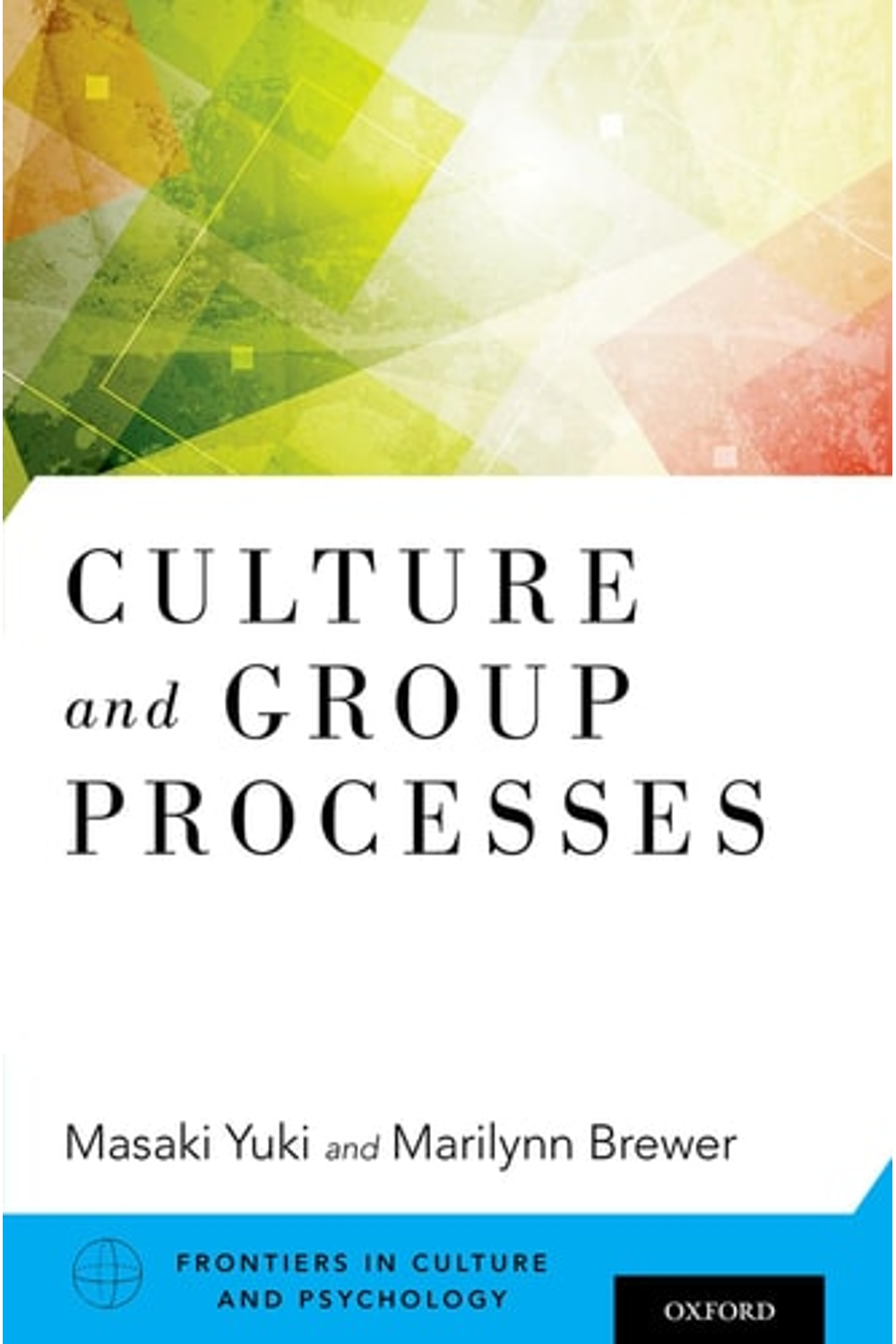Human beings are adapted for group living. Groups have a wide range of adaptive functions for individuals, including both material benefits of mutual aid and collective action, and subjective psychological benefits of affiliation and social identity. Recent development of cultural psychology, however, has uncovered that culture plays crucial roles in group processes: patterns of group behavior and underlying psychological processes are shaped within specific cultural contexts, and cultures emerge in group-based interactions. Culture and Group Processes, the inaugural volume of the Frontiers of Culture and Psychology series, is the first edited book on this rapidly emerging research topic. The eleven chapters included in this volume, all authored by distinguished scientists in the field, reveal the role of culture in group perceptions, social identity, group dynamics, identity negotiation, teamwork, intergroup relations, and intergroup communication, as well as the joint effect of cultural and group processes in interpersonal trust and creativity.
Delve into the fascinating intersection of culture and group dynamics with "Culture and Group Processes (Frontiers in Culture and Psychology)," edited by renowned social psychologist Masaki Yuki. This groundbreaking volume, published by Oxford University Press, is the inaugural offering in the "Frontiers of Culture and Psychology" series and presents a comprehensive exploration of how cultural contexts shape the intricate workings of groups and their profound impact on individual psychology. In a world increasingly interconnected yet fiercely diverse, understanding the interplay between culture and group behavior is paramount. This book addresses this critical need, moving beyond traditional perspectives to highlight the pivotal role of culture in molding group perceptions, social identities, and interpersonal interactions. Yuki, along with a team of distinguished scientists in the field, masterfully illuminates how cultural norms, values, and beliefs influence everything from teamwork and communication to intergroup relations and the very nature of trust. "Culture and Group Processes" challenges conventional wisdom by demonstrating that group dynamics are not universal but rather are deeply embedded within specific cultural frameworks. The book meticulously examines how these frameworks shape the way individuals perceive themselves and others within a group, negotiate their identities, and contribute to collective goals. It also explores the complex dynamics that arise when different cultural groups interact, addressing issues of communication, conflict resolution, and the formation of shared identities. This first edition comprises eleven insightful chapters that offer a rich tapestry of empirical research, theoretical frameworks, and real-world applications. Readers will gain a deeper understanding of: * **The cultural construction of social identity:** How culture shapes individuals' sense of belonging and affiliation within groups, influencing their behavior and attitudes. * **The role of culture in group dynamics:** How cultural norms impact leadership styles, decision-making processes, and conflict resolution strategies within groups. * **Culture and teamwork:** How cultural differences can affect collaboration, communication, and overall team performance. * **Intergroup relations:** How cultural biases and stereotypes influence interactions between different groups, leading to prejudice, discrimination, and conflict. * **Intergroup communication:** How cultural differences in communication styles and norms can create barriers to understanding and effective interaction between groups. * **The joint effect of cultural and group processes on interpersonal trust:** The complex interplay between culture, group affiliation, and the development of trust in interpersonal relationships. * **The influence of culture on creativity within groups:** How cultural norms and values can either foster or hinder innovative thinking and problem-solving in group settings. Masaki Yuki, a leading figure in cultural psychology, brings together a wealth of expertise and cutting-edge research to provide readers with a nuanced and insightful perspective on the cultural dimensions of group processes. His work emphasizes the importance of considering cultural context when studying human behavior and highlights the potential for cultural understanding to foster more effective collaboration and harmonious relations between groups. This book is an essential resource for students, researchers, and practitioners in psychology, sociology, management, and related fields who seek a deeper understanding of the complex interplay between culture and group dynamics. It offers valuable insights for anyone interested in promoting effective teamwork, managing cultural diversity, and fostering positive intergroup relations in an increasingly globalized world. "Culture and Group Processes" is more than just an academic text; it is a vital tool for navigating the complexities of human interaction in a multicultural world. It empowers readers to develop a greater awareness of their own cultural biases and assumptions and to cultivate a more nuanced understanding of the perspectives of others. By bridging the gap between cultural psychology and group dynamics, this book offers a powerful framework for promoting cross-cultural understanding, fostering effective collaboration, and building more inclusive and equitable societies. A cornerstone addition to any social science library.





